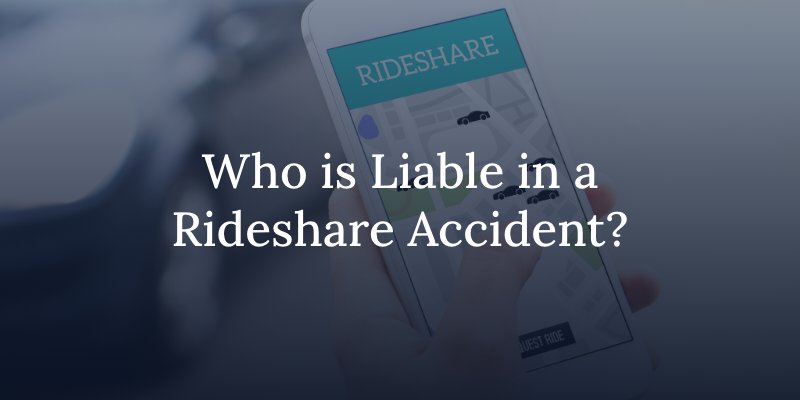How is Liability Determined in a Rideshare Accident?
Determining liability in a rideshare accident involves a multifaceted analysis of various factors, including the status of the rideshare driver, the role of the rideshare company, and the specifics of the accident. Understanding these elements is crucial for ensuring that the appropriate parties are held responsible and that victims receive adequate compensation.
Fault Determination
Establishing fault typically begins with determining whether the rideshare driver was negligent.
- Negligence: Negligence may involve distracted driving, speeding, running a red light, or failing to yield the right-of-way. Evidence like traffic camera footage, eyewitness accounts, and police reports can help establish negligence.
- Reckless Driving: If the rideshare driver was engaging in reckless behavior, such as aggressive driving or driving under the influence of alcohol or drugs, they might be liable for the accident. If you have been injured in an accident in which the driver was under the influence, contact our Kent DUI accident attorneys.
Status of the Driver
Unlike normal accidents, the driver’s status is important in rideshare accidents. This means the rideshare company’s liability and the extent of insurance coverage depend significantly on whether the driver was offline, online but without a passenger, or actively transporting a passenger. This status determines the application of the company’s insurance policies and the allocation of fault.
- Offline (App is Off): When drivers are not logged into the rideshare app, they are considered to be driving for personal reasons. In this case, their personal auto insurance is responsible for any accidents.
- Online but Waiting for a Ride Request: When the driver is logged into the app and available to accept rides, the rideshare company’s contingent liability coverage may apply. This coverage typically includes third-party liability insurance, which covers injuries and damages to others if the driver is at fault.
- En Route to Pick Up a Passenger: Once the driver has accepted a ride request and is on the way to pick up a passenger, the ride-sharing company coverage usually increases. This period is considered a higher risk, and the rideshare company’s insurance includes both liability and possibly collision and comprehensive coverage, depending on the driver’s personal insurance.
- During a Ride: When the driver has a passenger in the vehicle, the rideshare company’s insurance provides the highest level of coverage. This includes third-party liability, uninsured/underinsured motorist coverage, and collision and comprehensive coverage, ensuring that the passengers and the driver are adequately protected.
Interaction with Other Parties Involved
If the accident involves other parties, it can become more complicated.
- Other Vehicles: If the accident involves other vehicles, determining fault requires analyzing the actions of all drivers involved. Shared fault can occur, where both the rideshare driver and the other driver(s) bear some responsibility for the accident.
- Pedestrians or Cyclists: Accidents involving pedestrians or cyclists often place a greater burden of proof on the rideshare driver. These road users are more vulnerable, and liability frequently falls on the driver if they are not exercising appropriate caution.
Who is Liable?
Liability in rideshare accidents depends on a number of different factors:
Rideshare Company’s Liability
The rideshare company generally provides insurance coverage but may be considered liable in cases where their policies or platform contributed to the accident (e.g., encouraging unsafe driving practices).
Driver’s Personal Liability
Drivers may still be personally liable, particularly if their actions were grossly negligent or did not follow the rideshare company’s guidelines.
Get In Touch
Understanding your legal rights and the complexities of rideshare accident liability can be challenging. Seeking professional legal advice from a Kent Uber/Lyft accident attorney can help you navigate this process. Brumley Law has experience handling a wide range rideshare accident cases. Call for a free consultation at (833) 832-2727 or use our online form and see how we can help.
